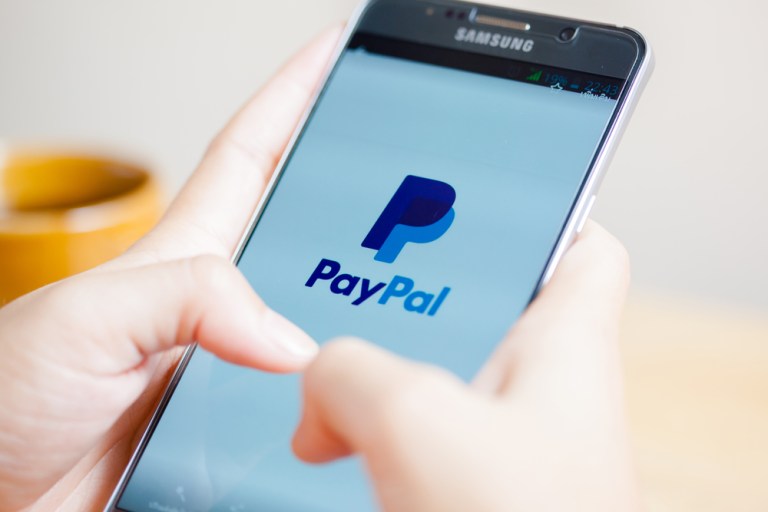PayPal Launches Instant Transfer To Bank

Money moves only as fast as payments infrastructure will allow.
To that end, there’s a bottleneck. The gig economy is gaining steam, as roughly a third (more than 35 percent) of U.S. workers are participating in part-time or project-based employment, and increasingly they want to get paid when the work is done. Roughly 85 percent of the several thousand gig workers we surveyed said they would work more often if they could be paid faster.
And as we found in the Gig Economy Index, a joint effort between PYMNTS and Hyperwallet, PayPal remains the most popular payment method for gig workers.
PayPal’s use among gig workers has increased from 39.5 percent of gig economy workers surveyed last quarter (Q3 2018) to 41.9 percent this quarter at the end of 2018.
Instant Transfer to Bank
Amid its increasing penetration into the gig economy as a preferred method of payment, PayPal announced today (March 12) that it is offering Instant Transfer to bank for qualified individual and business customers in the United States, with an eye on international expansion “in the near future.”
In an interview with Karen Webster conducted in tandem with the launch, Ready explained that the Tuesday news comes after PayPal’s success with its Instant Transfer to debit card, which debuted last year and where balances in PayPal accounts can be transferred to debit cards instantly.
In addition, the company also heralded a 2018 launch of Funds Now, which helps qualified companies gain instant access to funds from their completed sales — and where uptake has spanned more than 3.5 million businesses across several countries, among them the U.S., the U.K., Australia, Italy and Spain.
As Ready said about these offerings and now the Instant to Bank news, “we are really putting a lot of focus on instant access to funds,” he told Webster.
With Instant Transfer to Bank, said Ready, the appeal may be immediately apparent to consumers who want to, say cover bills or emergencies — but the new offering, he said, broadens the potential embrace of instant access to funds. He said that for small businesses and certainly for mid-sized businesses, “the person managing the payments is not the business owner and therefore doesn’t have access to the business debit card,” so being able to get paid instantly and being able to do that over bank account rails versus a debit card can be a game changer.
The Infrastructure Lags the Broader Trend
There’s a broader narrative afoot he said, namely that for smaller businesses, “the speed of access to cash really matters.” As he stated, and as borne out by the gig economy stats noted above, the workforce is changing. And per data he presented at Davos, an overwhelming 90 percent of net new job growth between 2005 and 2015 came through what he termed the alternative workforce. Think, gig economy, then — and as he noted, “they are not doing one or two things. They have multiple sources of income.”
Existing payments infrastructure has not kept pace. Digitalization has brought about faster technology, but paradoxically, sometimes, slower access to funding. Think, for example, of ACH and batch payments — same day settlement is an option to be sure, but during normal business hours. Weekends and holidays can stretch out the period between when funds are deposited and when they are actually available to be used or withdrawn.
Now, Ready said, being a PayPal business customer in good standing (vetted of course by PayPal in real time, which addresses some security concerns as funds flow instantly), he said, means having access to the money instantly — and he contended this “should be the norm and not the exception.”
The entrepreneur or individual who juggles those multiple streams of income now, through PayPal’s latest offering, has one place where they can reliably, and instantly, get access to funds. The fee structure, he said is one percent of funds transferred, up to a $10 cap.
“If you do not have a bank account and you need a debit card, we will give you that,” he said. “We are meeting the customers on their terms.”
The Mechanics of it All
Asked about the mechanics of the new offering, Ready said that JPMorgan had previously announced that it would be rolling out real-time payments and he said that PayPal “is the first major player at scale to leverage the capability,” which in turn will be available to consumers who bank at the banks that provide real time payments through The Clearing House. Those banks are many of the major banks in the U.S. including Bank of America, Citi, Wells Fargo and Chase.
“There’s ubiquity in the fact that we will get money to any bank account in the U.S.,” he told Webster, via one of PayPal’s Instant offerings, including now Instant Transfer to Bank.
Of the real time payments infrastructure via The Clearing House, Ready remarked that, “The infrastructure has been there for a little while,” he said, but there “has not been a major use case” until recently.
The SMB Benefit
For small businesses, especially, working capital can be deployed more efficiently; the Instant Transfer to Bank option releases working capital by eliminating the waiting periods for customers in good standing, Ready noted that as much as a week’s worth of working capital can be held back due to infrastructure concerns, which, freed up, can be invested in employees or inventory.
“Customers are clearly demanding this,” said Ready of the movement to be paid, instantly, to their bank accounts. “Given the customer demand we see with transfer to debit card, we think you’ll see great customer receptivity to this as well.”